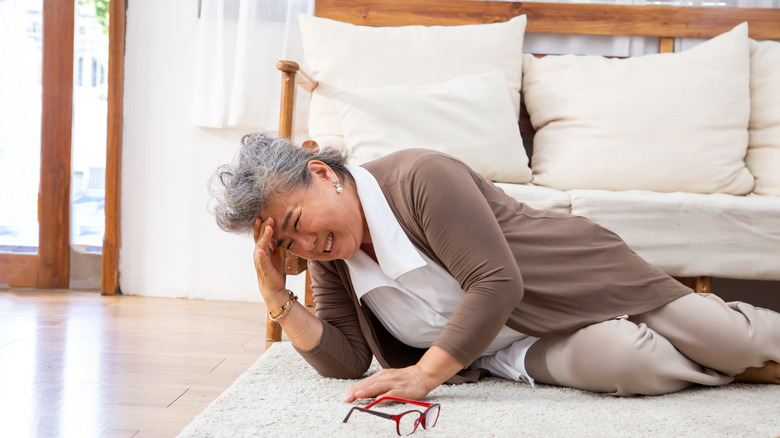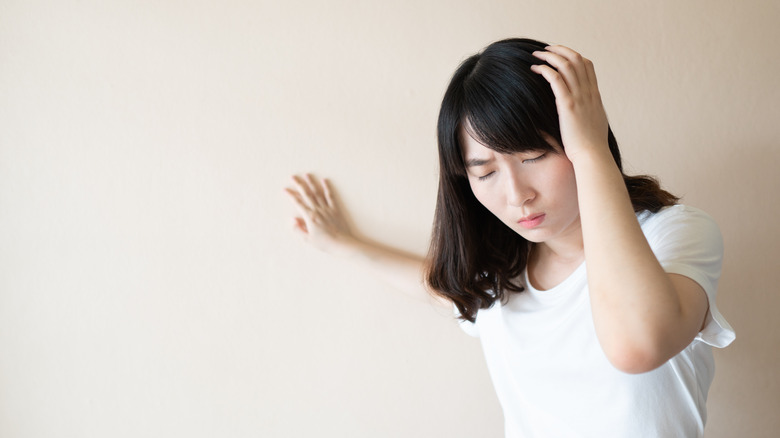What Happens To Your Body When You Have A Stroke
Most of us have heard of the word "stroke." And, while we know something bad is happening to the body, do most of us actually know what's going on? (Obviously, we're not talking to the doctors and medical students here).
Well, per Healthline, a stroke takes place when your brain is deprived of oxygen. And, the more your brain is deprived of air, the more your brain cells get damaged, hence why a stroke is so costly. Just a few minutes without air in your brain can kill you, which makes us wonder: how does such a thing happen?
There are many reasons, one being an ischemic stroke (when your red blood cells are blocked from entering the brain due to fatty deposits, per Mayo Clinic). The other cause is a hemorrhagic stroke, which is when a blood vessel ruptures in your brain, the outlet added. Though less common, this type of stroke can still occur due to high blood pressure, trauma (a.k.a. a car accident), or an aneurysm.
There are certain lifestyle and medical factors that increase the likelihood of having a stroke: being overweight, binge drinking, high cholesterol, diabetes, etc. That said, to best prevent a stroke, Mayo Clinic recommended controlling your blood pressure, managing your medical issue, eating healthier, and quitting drug use.
The effects of having a stroke can be significant
Though strokes are survivable, your body can still be heavily impacted by having a stroke, per Healthline. For example, you can lose certain abilities such as eating and swallowing, or movement and sensation. Additionally, you can develop difficulty breathing as a stroke can damage your lungs, leaving you more susceptible to pneumonia and infection, said the outlet.
Furthermore, it's not just the physical side that is altered from having a stroke. Since the nerves in your system can be damaged, you could have a hard time adjusting to normal everyday life. No longer will making decisions come easy to you, per Healthline. And, that's not even the worst part — you could also struggle with understanding your senses, specifically taste and touch. An activity that was once painless may become difficult.
In all, having a stroke is not a pretty picture. That's why it's up to you to do your best to prevent one from happening.

